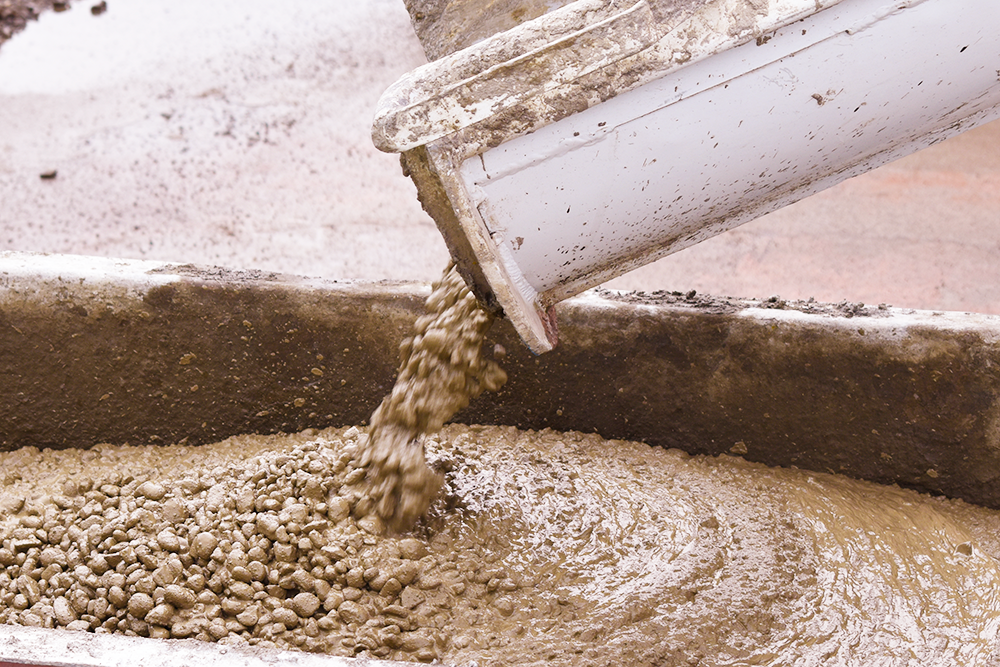Asphalt vs. Concrete
Asphalt and concrete are two of the most common materials used in residential and commercial construction. Both have their own inherent benefits and uses for specific projects and understanding the differences between them can help you get the function and aesthetic you desire...
May 12, 2021

Below, you can learn more about the differences in terms of appearance, climate, cost, and other factors to help you make the right choices regarding your project.
Appearance
Asphalt and concrete are very different in appearance. Asphalt is dark in color – often deep gray or black – and it has a very textured appearance. Concrete, on the other hand, can differ slightly in shade depending on the aggregate used, and regardless of aggregate type, concrete can be colored a multitude of colors using several different options. Furthermore, concrete can also be stamped or etched for even more personalization thanks to its smoother finish. If you have a specific look in mind for your project, concrete provides more flexibility in that regard.
Climate
When determining whether you prefer concrete or asphalt pavement, such as for a driveway or a walkway, it’s important to think about your climate – especially as it applies to the temperature and wintry precipitation. In areas where the climate tends to stay very hot for long periods of time, asphalt can become oily and soften whereas concrete maintains its rigidity. In climates that are known for extended periods of cold or lots of snow and ice, the opposite is true. Asphalt does not deteriorate with salt, and because it is so dark in color, it absorbs more heat from the sun, which allows ice and snow to melt more quickly.
Cost
Cost is another factor that is important in both commercial and residential settings. When considering the installation cost, you can expect to pay anywhere from $8 to $24 per square foot for material and labor for concrete and between $9 and $20 per square foot for asphalt. Though these prices can fluctuate depending on your location and the time of year, by the time you factor in longevity, care, and maintenance, the cost is virtually the same. Asphalt tends to be more affordable up front, for example, but it may require resealing every few years, which adds to its overall cost and brings it more in line with the cost of concrete.
Other Factors
When it comes to sheer longevity, concrete can last twice as long as asphalt when properly and carefully maintained. However, for driveways and sidewalks in the parts of Washington where snowfall and ice are expected, asphalt is far safer. For areas like parks and playgrounds, asphalt has more give and flexibility, which makes it a better choice in most situations. However, for applications in which heavy loads and sheer tensile strength is the primary concern, concrete will be the better choice.
As you can see, concrete and asphalt both have their own inherent properties. One is not always better than the other, but it is true that one might offer better performance in specific situations. Carefully consider the appearance you hope to achieve, the application itself, and the climate where you live before making a decision. If you’re uncertain which application might be best for your project, RiverBend Materials can guide you through the process. We can assess your circumstances and use, provide our unique perspective, get you quoted, and make sure that the job is done right. We look forward to hearing from you!

